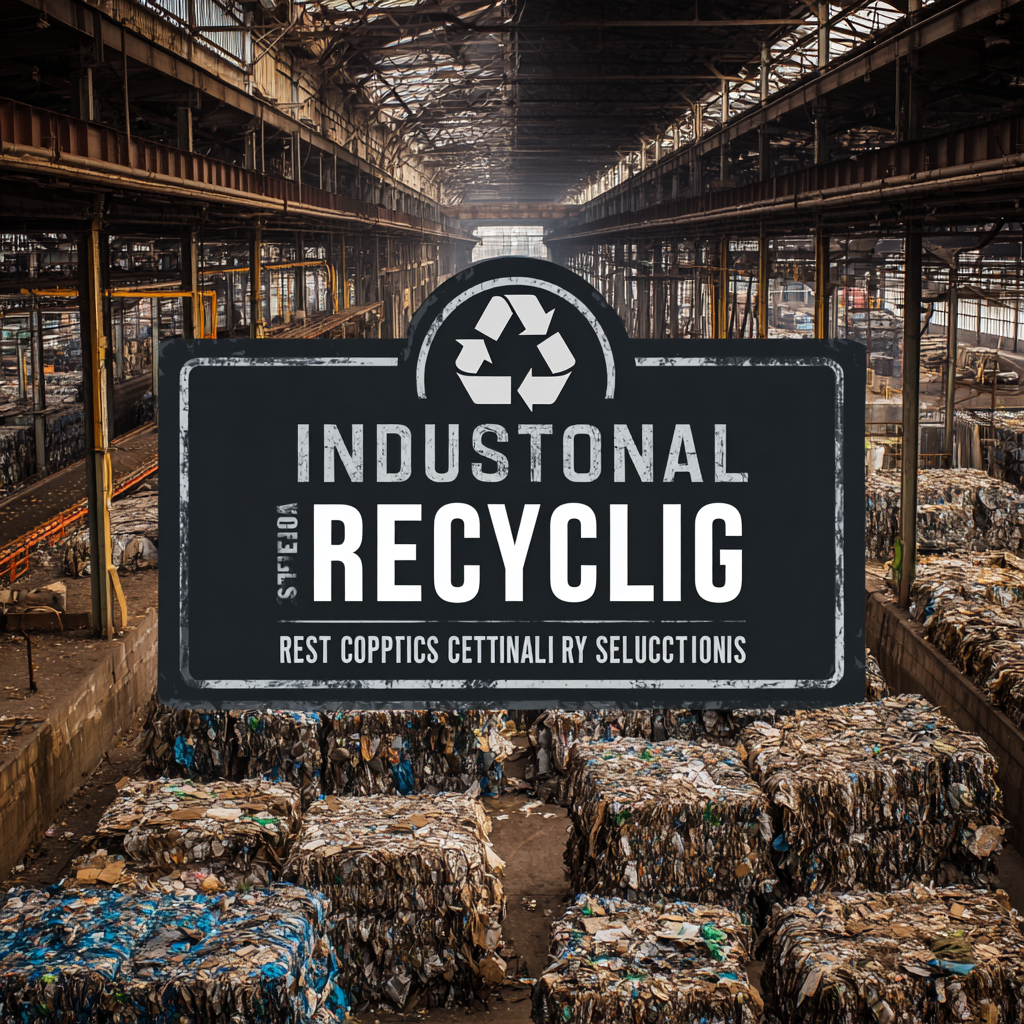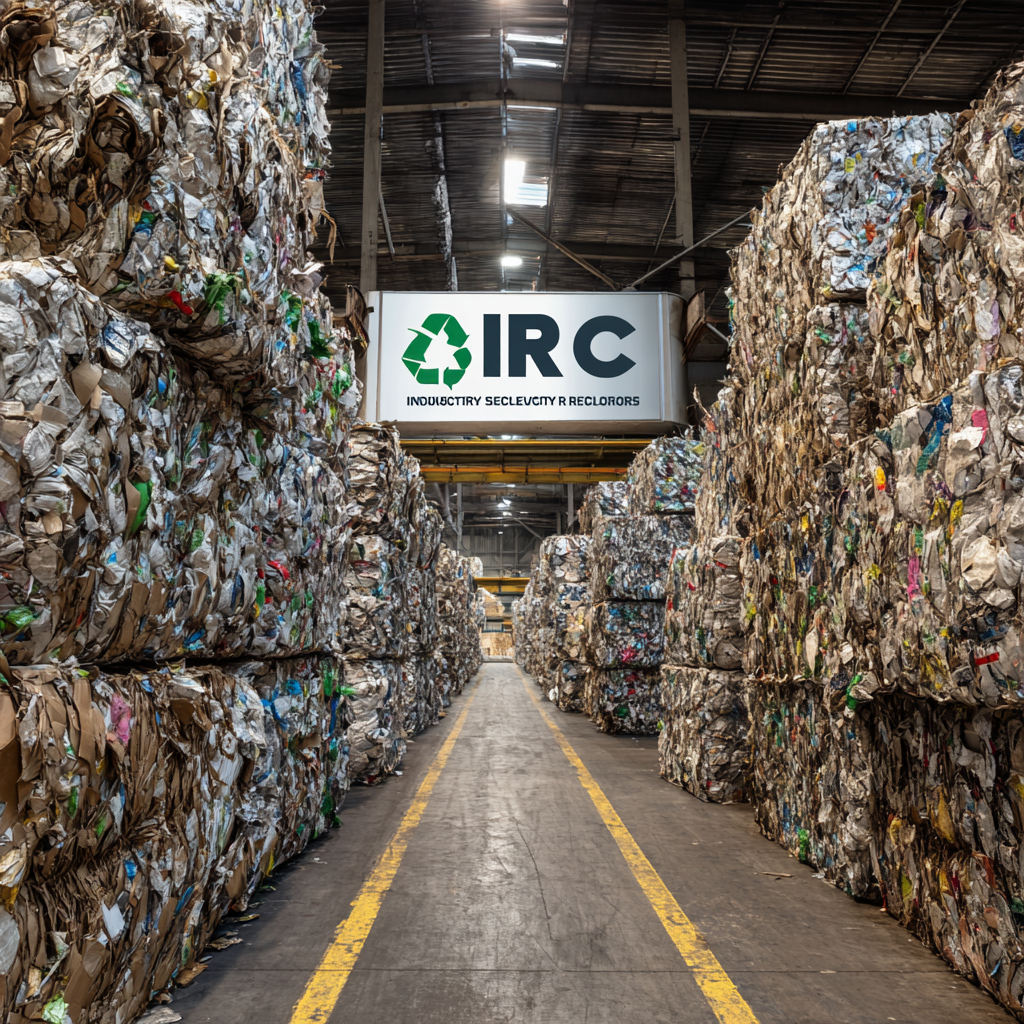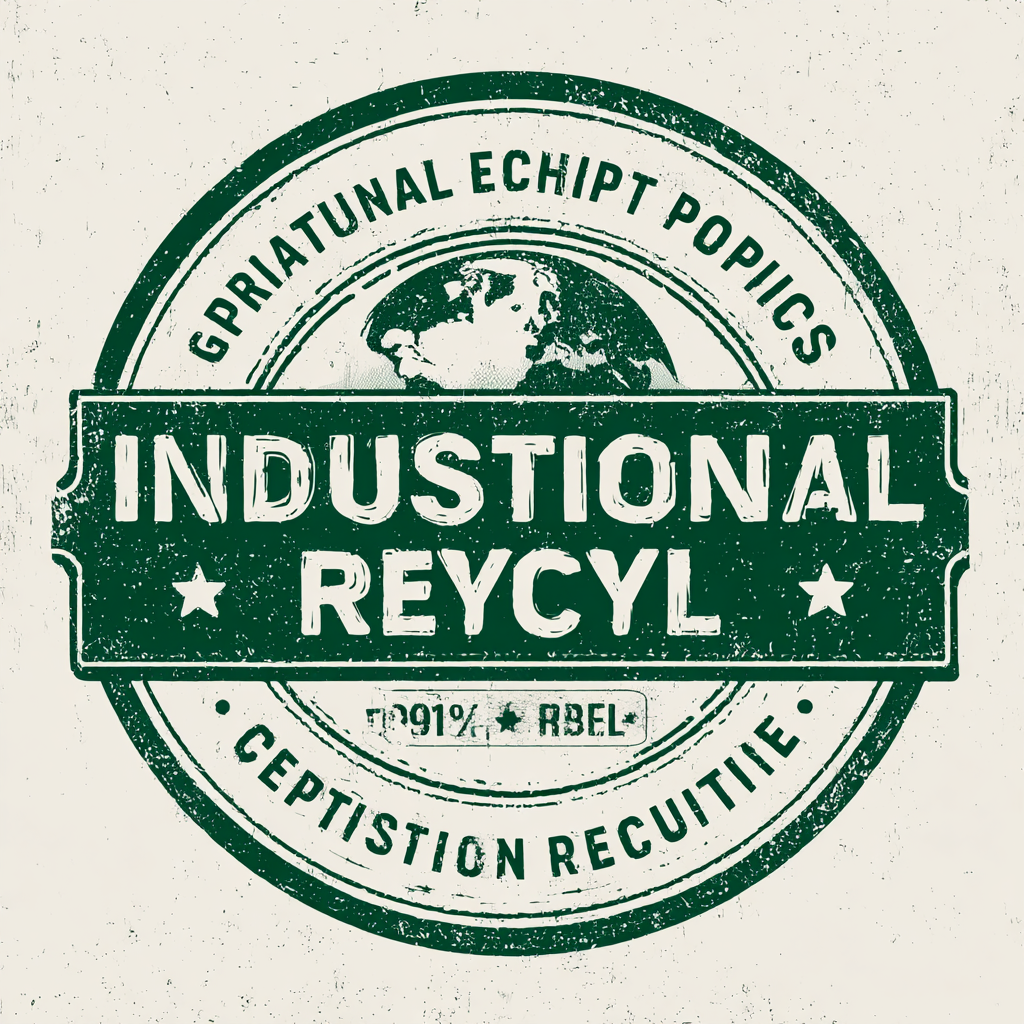In the rapidly evolving landscape of global trade, navigating the complex terrain of import-export certifications has become crucial for businesses seeking optimal industrial recycling solutions. As we approach the pivotal year of 2025, the market analysis indicates a significant shift in demand for sustainable practices that prioritize the efficient recycling of materials. Industrial recycling not only reduces waste but also contributes to a circular economy where resources are reused, minimizing the environmental impact.

This blog aims to explore the essential certifications required for businesses engaged in international trade, offering insights into best practices that can enhance operational efficiency while fulfilling regulatory requirements. By understanding the intricate interplay between certification processes and industrial recycling, companies can position themselves at the forefront of sustainability, driving innovation and growth in a competitive marketplace.
 Navigating the complex landscape of global import-export certifications is crucial for achieving the best industrial recycling solutions. Understanding these certifications not only ensures compliance with international regulations but also enhances the credibility of recycling practices. Different regions have specific requirements that dictate how materials must be handled, processed, and transported. Familiarity with certifications such as ISO standards, WEEE directives, and local environmental regulations can facilitate smoother operations and establish trust with partners and customers.
Navigating the complex landscape of global import-export certifications is crucial for achieving the best industrial recycling solutions. Understanding these certifications not only ensures compliance with international regulations but also enhances the credibility of recycling practices. Different regions have specific requirements that dictate how materials must be handled, processed, and transported. Familiarity with certifications such as ISO standards, WEEE directives, and local environmental regulations can facilitate smoother operations and establish trust with partners and customers.
Moreover, obtaining the right certifications can unlock new markets and opportunities for industrial recyclers. As global awareness around sustainability and eco-friendly practices grows, companies with recognized certifications can position themselves as leaders in responsible recycling. This not only aids in attracting environmentally-conscious clients but also aligns businesses with emerging trends in legislation that favor certified processes. Thus, prioritizing a thorough understanding of these certifications is essential for any organization looking to optimize its recycling strategies and contribute to a more sustainable industrial ecosystem.
Navigating the complex landscape of global import-export certifications is essential for industrial recycling solutions looking to align with sustainable practices. Several key certification types play a pivotal role in establishing standards and ensuring that businesses comply with environmental regulations. One of the most recognized certifications is ISO 14001, which sets the framework for effective environmental management systems, guiding companies to minimize their ecological footprint and optimize resource use.

Another important certification is the Responsible Recycling (R2) certification, aimed specifically at the electronics recycling industry. This standard emphasizes environmental stewardship and aims to ensure that recycling processes are carried out safely and responsibly. Additionally, certifications like e-Stewards further enhance credibility by ensuring that recyclers adhere to strict criteria for preventing toxic waste and promoting ethical practices throughout the recycling process. Understanding and obtaining these certifications can not only enhance a company’s reputation but also foster trust among customers and stakeholders committed to sustainability.
Navigating the regional certification requirements in the recycling sector presents a complex landscape influenced by sustainability goals and technological advancements. A comparative analysis reveals significant disparities in the regulatory frameworks across different regions, particularly in countries like China and Japan, where end-of-life vehicle recycling is heavily regulated. These frameworks not only guide the operational practices but also foster innovations in recycling technologies, which are essential in advancing circular economy objectives.
Furthermore, the emergence of sustainable practices in recycling, such as the advanced recycling of aluminum scraps into aerospace-grade alloys, indicates a growing trend towards environmentally sound processes. The challenges faced in the energy and cost efficiencies of PET recycling technologies highlight the need for better alignment of certifications with market realities. As global markets for recycled plastics expand, projected to reach USD 120 billion by 2030, the integration of robust certification systems becomes crucial. These systems will ensure that recycling operations adhere to the required standards, ultimately enhancing the credibility and efficiency of industrial recycling solutions.
The role of international agreements in streamlining certifications is crucial for companies engaged in global import-export activities, especially in the industrial recycling sector. With approximately 1.3 billion metric tons of waste generated globally each year, international collaborations can simplify the complex process of certification across borders. Agreements like the Basel Convention establish clear guidelines for the transboundary movement of hazardous wastes and their disposal, which is vital for ensuring compliance with national regulations in diverse markets.
Tips: Always stay updated on the latest international agreements that may affect your industry. Regularly check resources from the World Trade Organization (WTO) and the International Trade Centre (ITC) for developments that might impact import-export certifications. Networking with other industry players can also provide insights into best practices and compliance strategies.
Another pivotal aspect is the harmonization of standards. Reports indicate that countries with aligned certification criteria have seen up to a 20% reduction in time and costs associated with compliance. Implementing standardized certification processes not only enhances operational efficiency but also fosters trust with international partners, ultimately leading to more sustainable recycling solutions.
Tips: Consider investing in training sessions to ensure your team fully understands both local and international certification requirements. Utilizing technological solutions to automate compliance documentation can further streamline operations and enhance accuracy.
Achieving compliance in industrial recycling solutions is essential for companies looking to navigate the complex landscape of global import-export certifications. One best practice is to stay informed about the regulations in both the source and destination countries. This includes understanding the specific certification requirements, documentation needed, and any potential tariffs or trade barriers that might affect the recycling process. Regularly reviewing updates from regulatory bodies and industry associations can help companies remain compliant and avoid costly penalties.
Another effective strategy is to establish strong relationships with certified recycling partners who are knowledgeable about international standards. Collaborating with these partners not only ensures adherence to compliance but also enhances the overall efficiency of the recycling process. Moreover, investing in training programs for staff can foster a culture of compliance within the organization. By equipping employees with the right skills and knowledge, companies can streamline their operations and minimize risks associated with non-compliance, making the journey towards sustainable industrial recycling solutions more attainable.
| Certification Type | Issuing Authority | Region | Applicable Materials | Duration for Compliance |
|---|---|---|---|---|
| ISO 14001 | International Organization for Standardization | Global | Industrial Waste, Manufacturing by-products | 3 years |
| R2 Standard | SERI (Sustainable Electronics Recycling International) | USA | Electronics, E-waste | 2 years |
| WEEELABEX | WEEE Forum | Europe | Waste Electrical and Electronic Equipment | 3 years |
| EPA 40 CFR Part 261 | Environmental Protection Agency | USA | Hazardous Waste | Ongoing Compliance |
| EPEAT | Green Electronics Council | Global | Electronics, Computer Products | Annual Review |
